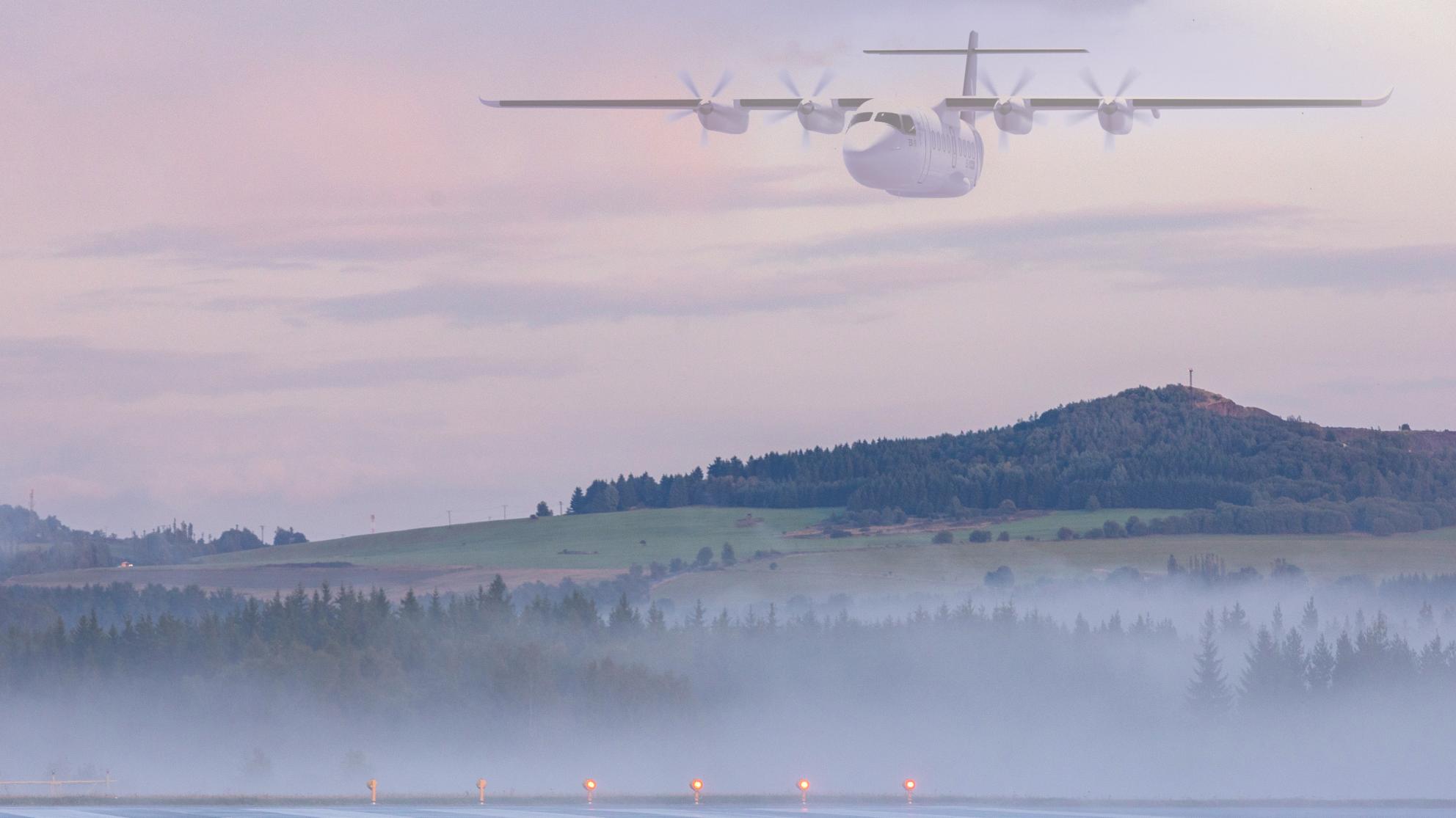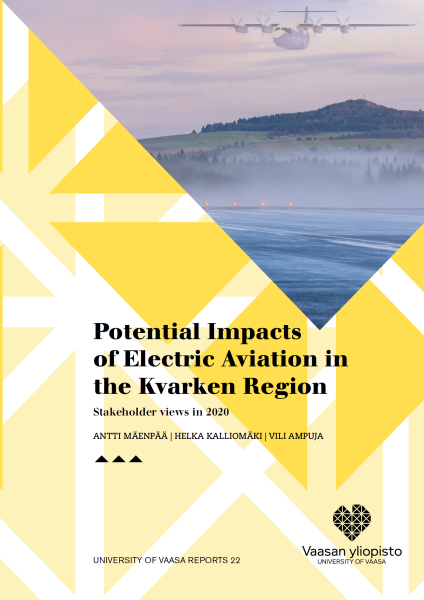Electric aviation as a possibility in the Kvarken region

According to recent survey results, on the one hand, the regional effects of electric aviation are manifold and on the other hand, challenging to foresee. Electric aviation is generally viewed as a new and exciting opportunity and a way to increase collaboration in the Kvarken region.
“We sent the link to the survey to specialists from FAIR-project network, which of course means that the respondents were mostly positive towards electric aviation, but had also realistic views concerning its current state and potential challenges”, Antti Mäenpää explains.
One major challenge is a suitable timetable and preliminary actions. Some stakeholders saw a need to rush to become a global pilot region in electronic aviation and others ask for a more cautious approach, as otherwise the implementation could be postponed by several years if some investments or actions go wrong. Despite this, the implementation of electric aviation is seen to affect positively existing networks and working methods.
For example, new collaboration opportunities are likely to emerge, and there will probably be new opportunities for existing industries in the Kvarken region, such as energy technology companies, as some of their products may become important in the electric aviation industry. The Kvarken region may also benefit from general interest, which arises from piloting electric flights. The region may also enhance its accessibility, especially if new regional routes to smaller airfields become a possibility. Electric aviation is also seen to enhance the region´s brand as a region with environmentally friendly technologies and pure nature.
Kvarken region is also an interesting case regarding its increasing cooperation practises. The region is now its own legal entity known as European Grouping of Territorial Cooperation, or EGTC. This allows for new opportunities, especially with interaction at the EU level.
“We are interested to learn more about EGTC and how collaboration in the region develops with this opportunity. Electric aviation is one theme where this new status in cooperation can be studied upon”, describes Helka Kalliomäki, who leads the University of Vaasa´s team in the project.
But when will electric passenger planes fly over Kvarken? Although there already are some smaller planes, it is estimated that small commercially viable passenger planes could be on the market in 2025. Bigger, hydrogen-based passenger craft will probably be more realistic to expect during 2030.
“Flying industry is currently facing big changes and FAIR-project allows for an ample opportunity to study new possible routes, as well as sustainable operating models. FAIR-project promotes the commercialization of electric aviation, together with regional actors and mutual activities. We see that the existing and developing cooperation offers good ground for this. Although 2025 might still feel as distant future, soon the time will be near and it is good to already think about the potential options.”, Helka Kalliomäki describes.
- Mäenpää, Antti, Kalliomäki, Helka & Ampuja, Vili (2021) Potential Impacts of Electric Aviation in the Kvarken Region: Stakeholder views in 2020. University of Vaasa reports 22. Vaasan yliopisto/ University of Vaasa.
- Publication pdf: http://urn.fi/URN:ISBN:978-952-476-947-1
FAIR (Finding innovations to Accelerate Implementation of electric Regional aviation) on INTERREG Bothnia Atlantica -hanke, joka on ensimmäinen askel kohti kestävän sähkölentämisen varhaista käyttöönottoa Merenkurkun alueella. Merenkurkun alue koostuu Pohjanmaan, sekä Etelä- ja Keski-Pohjanmaan maakuntien ja Västerbottenin läänin ohella Örnsköldsvikin kunnasta. flyfairkvarken.com
Further information
Helka Kalliomäki, University of Vaasa, Regional Science & InnoLab, tel. +358 29 449 8411, helka.kalliomaki (@) uwasa.fi
Antti Mäenpää, University of Vaasa, Regional Science, tel. +358 29 449 8531, antti.maenpaa (@) uwasa.fi

